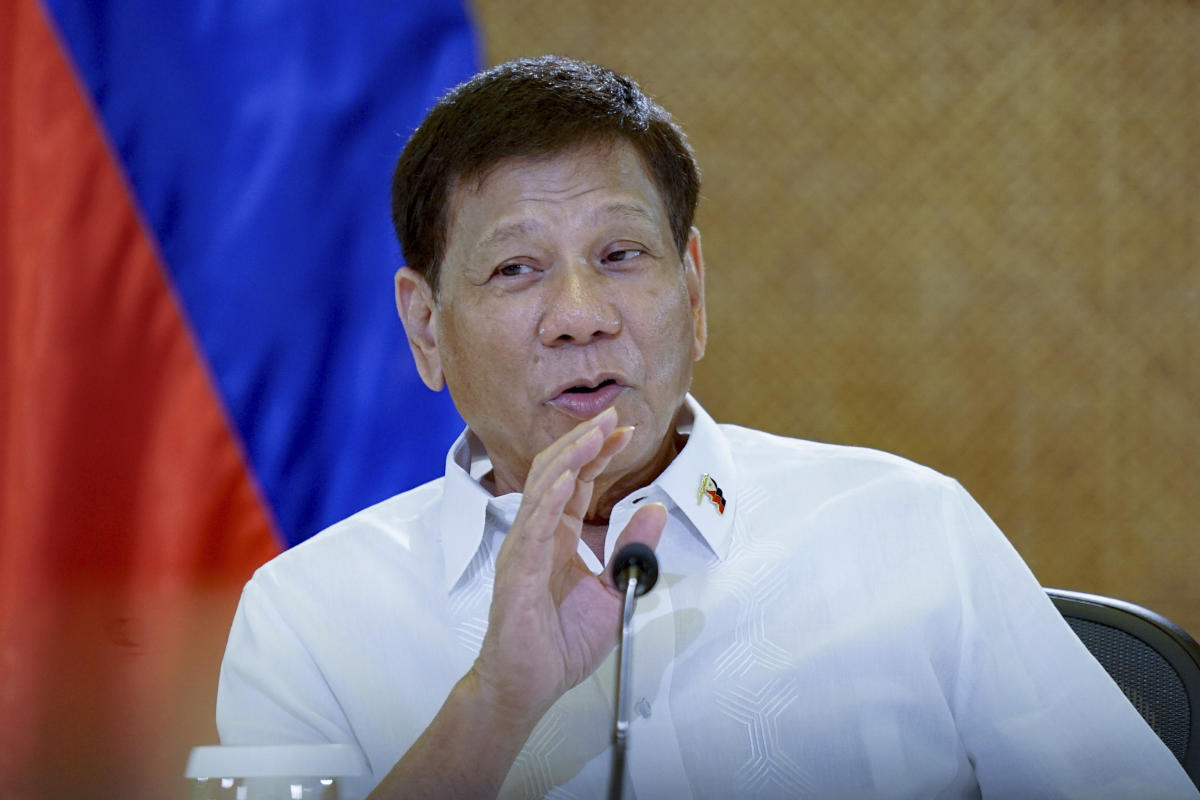MANILA, Philippines (AP) — Russia wants the Philippine government to honor a signed contract to purchase 16 military heavy-lift helicopters, which former President Rodrigo Duterte’s administration had canceled over fears of potential US sanctions.
Moscow’s ambassador to Manila, Marat Pavlov, told reporters on Wednesday night that the Philippine government has not officially notified Russia of its decision to cancel the deal and that a Russian company began producing the Mi-17 helicopters after the Philippines launched a made the first payment.
Philippine pilots, who would be flying the helicopters, have received Russian training, he said.
The Russian aircraft manufacturer was ready to deliver one of the helicopters in June, “but unfortunately it was not accepted by your government,” the ambassador said.
“We are ready to fulfill all our obligations as a reliable partner of the Philippine side in the field of technical military cooperation and we believe that the same will be done by the Philippines,” said Pavlov.
There was no immediate comment from the Philippine government, which is now headed by President Ferdinand Marcos Jr., but the Department of National Defense has said that after the decision was made to end the Russian helicopter deal, a government commission would be convened to discuss details. and are working to recover the unspecified amount paid to the Russian company by the Philippine government. The Russians can appeal, but there is little room for the Philippine government to reconsider, a defense official said.
“I know that every contract should state how it can be resolved in the event that one of the parties would like to cancel,” Pavlov said, expressing hope that the issue can be resolved under the new Marcos Jr. administration. declared an independent foreign policy.
Former Philippine Defense Secretary Delfin Lorenzana and Ambassador to Washington Jose Manuel Romualdez first confirmed the government’s decision to close the deal to purchase the Russian helicopters in July in interviews with The Associated Press.
The decision to cancel the contract, which was approved by Duterte, was taken out of concerns over possible Western sanctions, including restrictions that would slow down wire transfers from the huge income that Filipino workers send home from the US and other Western countries, among others. potential problems, according to Romualdez.
One of Duterte’s cabinet members, Treasury Secretary Sonny Dominguez, had then warned Duterte that Western countries could refuse aid that could help the Philippines deal with and recover from coronavirus outbreaks, two Philippine officials told The AP on condition of anonymity because they would not. have the authority to discuss the matter publicly.
Romualdez has said Washington has not pressured the Philippines to drop the 12.7 billion pesos ($215 million) deal with the Russians.
But after Russia’s invasion of Ukraine in February, countries buying Russian defense equipment could face Western sanctions, he said.
“I think it was very careful especially for President Duterte to approve the cancellation of that contract because it could save us a lot of trouble,” Romualdez told foreign correspondents in Manila in August.
A US offer to sell Boeing CH-47 Chinooks, discussed last year by Lorenzana and its US counterpart, Lloyd Austin, could be considered to replace the Russian helicopter deal, Romualdez said.
According to the scrapped helicopter deal, signed in November, the first batch of the multi-purpose helicopters would be delivered by Russia’s Sovtechnoexport in about two years. Aside from the 16 helicopters, one unit should have been given to the Philippines for free, defense officials said.
The Russian-made helicopters could have been used for combat, search and rescue and medical evacuations in the Southeast Asian archipelago, which is often ravaged by typhoons and other natural disasters, Philippine officials said.
In March, the Philippines voted ‘yes’ to a UN General Assembly resolution that demanded an immediate halt to Moscow’s attack on Ukraine and the withdrawal of all Russian troops.
Duterte has expressed concern about the global impact of the Russian invasion, but has not personally condemned it while he was still president. While in office, he maintained close ties to Russian President Vladimir Putin, whom he once called his “idol,” and Chinese leader Xi Jinping, while regularly criticizing US security policy.
The Philippines is a treaty ally of Washington, which has imposed heavy sanctions on Moscow to pressure the country to withdraw from Ukraine.

